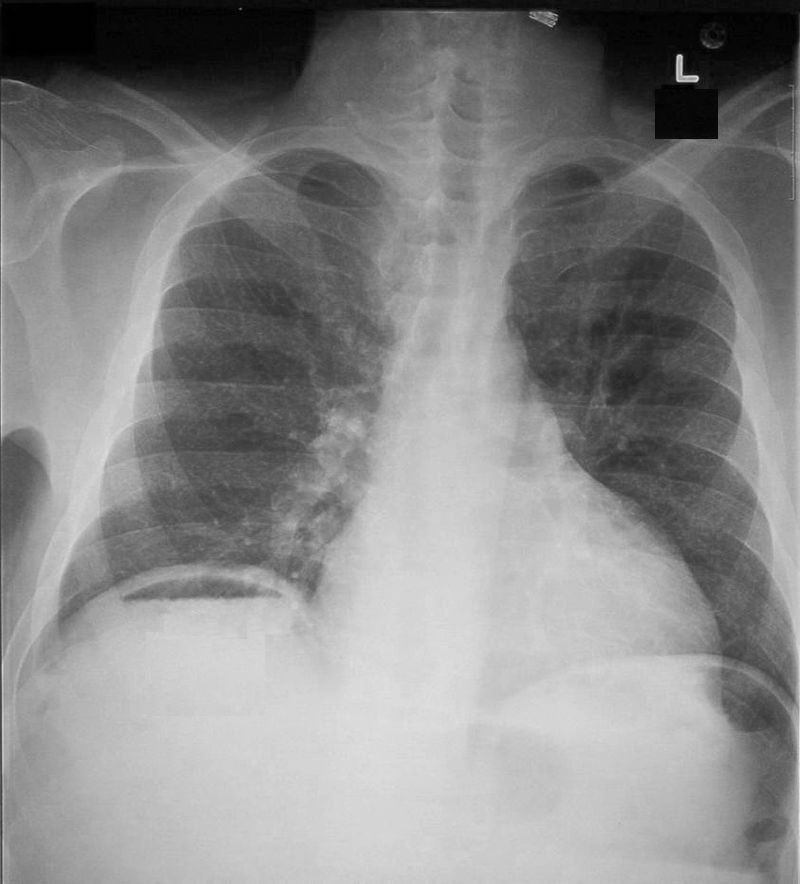A 68-year-old man with a history of rheumatoid arthritis presents with sudden onset severe abdominal pain. On examination his abdomen is rigid, with generalized tenderness, guarding and rebound tenderness. An erect chest X-ray is performed, which is shown below:

1. What is the most likely diagnosis?
Show Answer
This patient has clinical features consistent with peritonitis and his chest X-ray demonstrates the presence of free air under the diaphragm, which is indicative of pneumoperitoneum.
Question image adapted from Wikipedia
Courtesy of Clinical Cases CC BY-SA 2.5
2. What is the most common cause of this condition?
Show Answer
The most common cause of pneumoperitoneum is a perforated peptic ulcer, and the most frequent site of perforation is the anterior wall of the first part of the duodenum.
Perforation occurs when the ulcer erodes through the full thickness of the gut wall. Gastric and duodenal contents spill into the peritoneal cavity causing generalised peritonitis.
3. Which class of drug is likely to have contributed in this case?
Show Answer
The patient in this case has a history of rheumatoid arthritis, which is suggestive that he is possibly taking NSAIDs.
NSAIDs can cause damage to the gastroduodenal mucosa via several mechanisms, including the topical irritant effect of these drugs on the epithelium, impairment of the barrier properties of the mucosa, suppression of gastric prostaglandin synthesis, reduction of gastric mucosal blood flow and interference with the repair of superficial injury.
Header image used on licence from Shutterstock.






Reasonable thinking